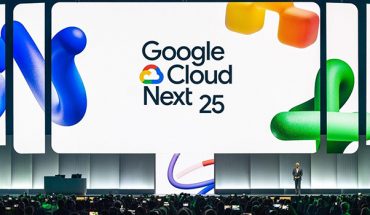ChatGPT is disrupting economic and societal paradigms, right now. From business to healthcare to education, the way we search, access, and use information has changed due to AI technology.
I asked Dr. Sarah Saska, of Feminuity and who specializes in the intersection of tech and Diversity, Equity, and Inclusion (DEI), about the dangers stemming from AI chat tools in the workplace and beyond.
What is ChatGPT?
 Saska explained, “Chat Generative Pre-trained Transformer, or as most know it, ChatGPT is an artificial intelligence (AI) launched by OpenAI. Built in November 2022, Chat GPT is able to create human-like text to a wide range of questions posed by the user. And since its inception, it’s quickly taken the tech world – and beyond – by storm.”
Saska explained, “Chat Generative Pre-trained Transformer, or as most know it, ChatGPT is an artificial intelligence (AI) launched by OpenAI. Built in November 2022, Chat GPT is able to create human-like text to a wide range of questions posed by the user. And since its inception, it’s quickly taken the tech world – and beyond – by storm.”
“In fact, ChatGPT has been heralded as the world’s next big disruptor as we know it and some say it could dethrone Google as the most used search engine,” stated Saska.
“Using its advanced AI technology, users can ask the chat bot just about anything, and its responses are generated using the vast online data that ChatGPT has collected.”
Laying its capability bare, Saska said, “With a free version available currently, ChatGPT can be used for everything from answering a simple question to writing poetry to passing MBA course exams.”
“ChatGPT has made its way across news headlines and major players like Bing are also introducing their own advanced AI chat functions.”
Content Bias
Saska contextualized the challenges of curated data for AI tools with the following observations.
“Historically, as new technologies emerge, we tend to trust them, assuming they are more neutral and implicitly better. However, researcher, technologists, and ethicists have been sounding the alarm since the 1970s about the risks,” stated Saska. “Indeed, technology is not more objective than people – it’s merely an extension of its creators, our collective history, and its active users.”
Saska explained, “Generally, this is the cycle we tend to see with any new technology or innovation:
- Humans design technology: We imagine a new tool, like ChatGPT, and make some initial design decisions, such as making Standard English the default language.
- Society shapes technology: As part of the design process, generative AI draws on our collective, historical data. This data reflects histories of exclusion and discrimination. Once built, such a tool is shaped by us on an ongoing basis, and reflective of our habits, behaviours, and ethics.
- Humans are shaped by technology: As a result of the data used and our interactions with it, ChatGPT reveals glaring and subtle biases in how it responds to our inputs. And our initial design choices, like selecting Standard English as the default, have other unintended consequences, like erasing diverse languages and dialects, such as Black American English.
Said Saska, “In this way, we don’t need explicit forms of exclusion and discrimination to be sexist, racist, or ableist, it is simply part of many new technologies. And the nature in which new technologies scale means we can scale all sorts of isms and forms of inequity at warp speed.”
“ChatGPT specifically has made its way into the mainstream so has brought some of these important conversations to the forefront,” remarked Saska. “With it becoming such a prominent conversation, folks are dissecting the ethics around its creation, but also what it means for the future of work and education.”
Improving automated chat for everyone
Is there corporate social responsibility to improve AI tools and data?
“There are a few key ways to address bias in AI that major companies like Microsoft should be mindful of,” responded Saska.
“It’s important to consider the processes that can be used to mitigate the inherent biases in our AI systems. One approach is “pre-processing the data,” which will help maintain data accuracy.”
“It’s also important for programmers and those engaging with AI to introduce the idea of critical computing,” said Saska. “People who interact with AI need to take an analytical approach to how they critique computer algorithms. This is just as important as learning how to program.”
“At its peak, technology can be ethical, inclusive, and accessible and meets the needs of a diverse and global customer base. It’s both up to the people designing it, and those engaging with it to remain vigilant and push for technology that empowers everyone.”
AI Tools and the Workforce
Chat functionality begs the question, so what is the impact on our workforce?
“ChatGPT has the power to redefine supply and demand and can have major – and sometimes scary – implications on the workforce,” said Saska. “We’re already seeing a complex relationship between the labour market and technology like ChatGPT.”
“As we head towards a recession, there have been major layoffs across the tech industry with thousands of people losing their jobs,” stated Saska. “Microsoft, for instance, recently eliminated 10,000 jobs – and soon announced it was investing billions of dollars into OpenAI, ChatGPT’s parent company.”
“Such advanced technologies can replace humans in the workforce, and this is something that is causing people a lot of fear and uncertainty, particularly in such tumultuous times,” said Saska.
AI chat is a disruptor, and its value and biases have just begun to be understood.
-30-
More on ChatGPT



